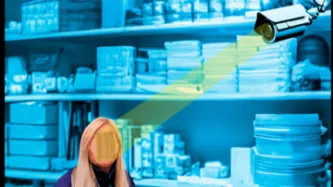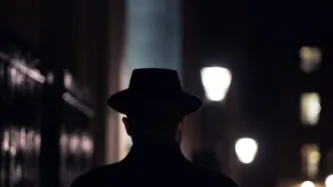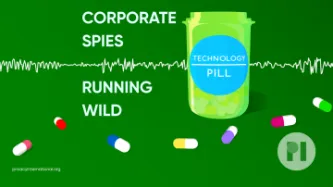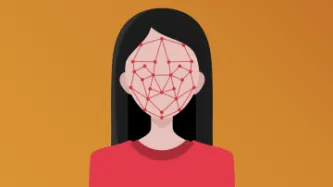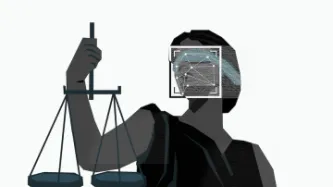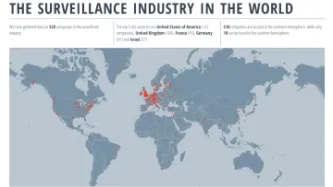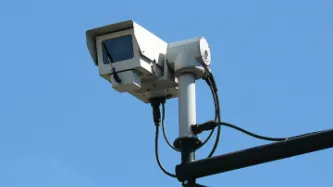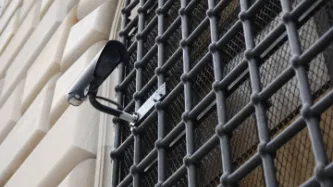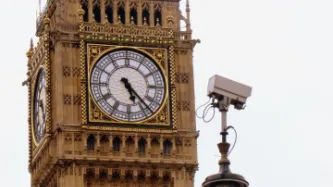Search
Content type: Press release
9 November 2023 - Privacy International (PI) has just published new research into UK Members of Parliament’s (startling lack of) knowledge on the use of Facial Recognition Technology (FRT) in public spaces, even within their own constituencies. Read the research published here in full: "MPs Asleep at the Wheel as Facial Recognition Technology Spells The End of Privacy in Public".PI has recently conducted a survey of 114 UK MPs through YouGov. Published this morning, the results are seriously…
Content type: Long Read
TAKE ACTION TO STOP THE END OF PRIVACY IN PUBLIC1. IntroductionThe use of facial recognition technology (FRT) by law enforcement and private companies in public spaces throughout the UK is on the rise. In August 2023, the government announced that it is looking to expand its use of FRT, which it considers “an increasingly important capability for law enforcement and the Home Office”. The indiscriminate use of this dystopian biometric technology to identify individuals in public spaces is a form…
Content type: Report
This briefing takes a look at the private intelligence industry, a collection of private detectives, corporate intel firms, and PR agencies working for clients around the world that have made London their hub.
Often staffed by ex-spooks, and promising complete secrecy, little is known about them. But reports over the years have exposed their operations, including things like hacking and targeting of anti-corruption officials, spying on peaceful environment activists, and running fake '…
Content type: Video
Links
The Enablers by the Bureau of Investigative Journalism
PI's report
Submit your podcast questions
Sign up to our mailing list
Places to listen
You can listen and subscribe to the podcast where ever you normally find your podcasts:
Spotify | Apple podcasts | Castbox | Google podcasts | Overcast | Stitcher | Pocket Casts | Peertube | Youtube | Soundcloud | Podbean | Podcast Republic | Breaker | Podcast Addict | Deezer | and more...
Content type: News & Analysis
As Amnesty International and Forbidden Stories continue to publish crucial information about the potential targets of NSO Group’s spyware, we know this much already: something needs to be done.
But what exactly needs to be done is less obvious. Even though this is not the first time that the world has learned about major abuses by the surveillance industry (indeed, it’s not even the first time this month), it’s difficult to know what needs to change.
So how can the proliferation and use of…
Content type: Examples
In December 2020 Myanmar authorities began rolling out its $1.2 million "Safe City" system of 335 Huawei AI-equipped surveillance cameras in eight townships in the capital, Naypyidaw. The system, whose purpose was originally presented by the Myanmar government as fighting crime, automatically scans faces and vehicle licence plates in public places and alerts authorities to the presence of those on a wanted list. The Safe City plan calls for installing similar systems in Mandalay by mid-2021 and…
Content type: Examples
In 2019 Hong Kong protesters cut down 20 of the city's smart lampposts, which are streetlights equipped with sensors and cameras, in order to counter the threat that they were vectors for surveillance technologies such as facial and licence plate recognition. TickTack Technology, which provided the lampposts, terminated its contract with the Hong Kong government because of the property damage and threats to its employees. Protesters uploaded pictures of the lampposts' inner workings to Facebook…
Content type: Examples
During 2019, Hong Kong law enforcement authorities had access to AI facial recognition software provided by Sydney-based iOmniscient that can match faces and licence plates from video footage to police databases, but chief executive Carrie Lam's administration and police did not confirm whether they were using it to quash the pro-democracy protests. IOmniscient is also used to find lost children and manage traffic and has users in more than 50 countries. Under Hong Kong's privacy laws, members…
Content type: Video
Remember: sign our ECI! pvcy.org/banbiometrics
And you can find our survey here: pvcy.org/tpsurvey
Links
Facebook Leak
- Facebook Leak: https://www.businessinsider.com/stolen-data-of-533-million-facebook-users-leaked-online-2021-4?r=US&IR=T
- Mark Zuckerburg on signal?: https://www.thesun.co.uk/tech/14595265/mark-zuckerberg-using-whatsapp-rival-signal/
- Irish DPA investigation: https://www.cnet.com/news/facebook-under-investigation-in-europe-over-massive-personal-data-leak…
Content type: Report
Privacy International has released a report summarising the result of its research into the databases and surveillance tools used by authorities across the UK’s borders, immigration, and citizenship system.
The report uses procurement, contractual, and other open-source data and aims to inform the work of civil society organisations and increase understanding of a vast yet highly opaque system upon which millions of people rely.
It also describes and maps…
Content type: News & Analysis
Privacy International (PI) has today warned UK regulatory and law enforcement bodies about the potential deployment of an extensive and potentially nationwide police facial recognition surveillance system. We are urging them to investigate and take steps to ensure that no ‘backdoor’ for unlawful facial recognition surveillance will be developed under the umbrella of a crime reporting system.
According to pricing and data-sharing templates, UK surveillance company Facewatch is offering to…
Content type: Explainer
At first glance, infrared temperature checks would appear to provide much-needed reassurance for people concerned about their own health, as well as that of loved ones and colleagues, as the lockdown is lifted. More people are beginning to travel, and are re-entering offices, airports, and other contained public and private spaces. Thermal imaging cameras are presented as an effective way to detect if someone has one of the symptoms of the coronavirus - a temperature.
However, there is little…
Content type: Examples
Aided by its small size, Singapore's contact tracing efforts were a key element of controlling the virus's spread; detectives used CCTV footage to locate the contacts of more than 6,000 people. Singapore also contacts individuals required to self-isolate several times a day and requires them to send photographic proof of their location. Breaking quarantine attracts substantial penalties, including jail terms, and in one case stripped an offender of his residency rights. Singapore also quickly…
Content type: Examples
Russian authorities are using surveillance cameras, facial recognition systems, and geolocation to enforce a two-week quarantine regime affecting 2,500 people. Chinese citizens are banned from entering Russia; Russians and citizens of other countries who arrive from China are required to go through two weeks of quarantine. Police raid hotels to find Chinese citizens who arrived before border controls began, and bus drivers have been ordered to call their dispatchers if they see Chinese citizens…
Content type: Advocacy
On November 1, 2019, we submitted evidence to an inquiry carried out by the Scottish Parliament into the use of Facial Recognition Technology (FRT) for policing purposes.
In our submissions, we noted that the rapid advances in the field of artificial intelligence and machine learning, and the deployment of new technologies that seek to analyse, identify, profile and predict, by police, have and will continue to have a seismic impact on the way society is policed.
The implications come not…
Content type: Long Read
Imagine that every time you want to attend a march, religious event, political meeting, protest, or public rally, you must share deeply personal information with police and intelligence agencies, even when they have no reason to suspect you of wrongdoing.
First, you need to go to the police to register; have your photo taken for a biometric database; share the contacts of your family, friends, and colleagues; disclose your finances, health records, lifestyle choices, relationship status, and…
Content type: Explainer
What is the Global Surveillance Industry?
Today, a global industry consisting of hundreds of companies develops and sells surveillance technology to government agencies around the world. Together, these companies sell a wide range of systems used to identify, track, and monitor individuals and their communications for spying and policing purposes. The advanced powers available to the best equipped spy agencies in the world are being traded around the world. It is a…
Content type: News & Analysis
It's not often that you get to witness the birth of a new philosophy. However, according to the UK Home Office, a new philosophy is at the heart of their new Surveillance Camera Code of Practice, published this month, and currently subject to a badly publicized consultation process. The name of this new philosophy? Surveillance by Consent.
An extended version of this piece is available on the No CCTV website.
Of course, the term is not really new, nor is it a philosophy. Rather, it is…
Content type: News & Analysis
1. What is CCTV?
CCTV (Closed Circuit Television) is a visual surveillance technology designed for monitoring a variety of environments and activities. CCTV systems typically involve a fixed (or "dedicated") communications link between cameras and monitors.
In the past decade, the use of CCTV has grown to unprecedented levels. In Britain between £150 and £300 million ($225 - $450 million) per year is now spent on a surveillance industry involving an estimated 300,000 cameras. Most…
Content type: News & Analysis
In recent years, the use of Closed Circuit Television (CCTV) in the UK has grown to unprecedented levels. Between £150 and £300 million per year is now spent on a system that involves an estimated 200,000 cameras. According to the British Security Industry Association, more than three quarters of these systems have been professionally installed. Most towns and cities are moving to CCTV surveillance of public areas, housing estates, car parks and public facilities. Growth in the market is…
